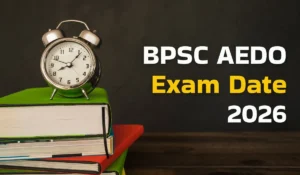Q1. एक अंडा जब साधारण पानी में रखा जाता है तो डूब जाता है लेकिन नमकीन पानी में रखने पर तैरता है। यह है क्योंकि
(a) नमकीन का घनत्व सामान्य पानी की तुलना में कम है
(b) नमकीन पानी का घनत्व सामान्य पानी के बराबर होता है
(c) नमकीन पानी की घनत्व सामान्य पानी की तुलना में अधिक है
(d) इनमें से कोई नहीं
(e) उपरोक्त में से कोई नहीं
Q2. निम्नलिखित में से कौन सा क्रिस्टलीय ठोस का गुण नहीं है?
(a) परमाणुओं और अणुओं को एक निश्चित क्रम में व्यवस्थित किया जाता है
(b) इसका तीव्र गलनांक नहीं होता है
(c) क्रिस्टलीय ठोस समतल सतहों से घिरे होते हैं
(d) उनके पास एक समान रासायनिक संरचना है
(e) उपरोक्त में से कोई नहीं
Q3. एक आदमी एक नाव में बैठा है जो तालाब में तैर रही है। अगर आदमी तालाब से कुछ पानी पीता है, तो तालाब में पानी का स्तर होगा-
(a) थोड़ा ऊपर उठता है
(b) थोड़ा गिरता है
(c) स्थिर रहता है
(d) इनमें से कोई नहीं
(e) उपरोक्त में से कोई नहीं
Q4. किसी द्रव्य से बहुत छोटे अघुलनशील कणों को ______ का उपयोग करके अलग किया जा सकता है।
(a) क्रिस्टलीकरण
(b) आंशिक आसवन
(c) अपकेंद्रण
(d) निस्तारण
(e) उपर्युक्त में से कोई नहीं
Q5. निम्नलिखित में से किस तत्व का “लैसेग्ने परीक्षण” द्वारा पता नहीं लगाया जा सकता है?
(a) I
(b) CI
(c) S
(d) F
(e) उपरोक्त में से कोई नहीं
Q6. कोशिका के निम्नलिखित में से कौन सा अंग प्रकाश संश्लेषण में शामिल होता है?
(a) क्लोरोप्लास्ट
(b) माइटोकॉन्ड्रिया
(c) गोल्जी काय
(d) एंडोप्लास्मिक रेटीकुलम
(e) उपर्युक्त में से कोई नहीं
Q7. निम्नलिखित में से किसके अणुओं में पिंजरे जैसी संरचना होती है?
1. हीरा
2. ग्रेफाइट
3. फुलरीन
नीचे दिए गए कूट का प्रयोग करके सही उत्तर चुनिए:
(a) 1, 2 और 3
(b) केवल 2 और 3
(c) केवल 2
(d) केवल 3
(e) उपरोक्त में से कोई नहीं
Q8. गुरुत्वाकर्षण के विरुद्ध पौधे के तने में पानी की गति का अंतिम कारण ________________है।
(a) ऑस्मोसिस
(b) प्रकाश संश्लेषण
(c) वाष्पोत्सर्जन
(d) विसरण
(e) उपर्युक्त में से कोई नहीं
Q9. एक बीज परिपक्व है:
(a) अंडाशय
(b) फूल
(c) जायांग
(d) बीजांड
(e) उपर्युक्त में से कोई नहीं
Q10. बल द्वारा उत्पन्न बलाघूर्ण निर्भर करता है?
(a) बल का परिमाण
(b) बल की दिशा
(c) मूल के सापेक्ष बल के आवेदन का बिंदु
(d) उपरोक्त सभी
(e) उपरोक्त में से कोई नहीं
SOLUTIONS:
S1.Ans. (b)
Sol. An egg when placed in ordinary water sinks but floats when placed in brine. This is because density of brine is greater than that of ordinary water.
S2.Ans. (b)
Sol. Crystalline Solid does not have a sharp melting point.
S3.Ans. (c)
Sol. Due to an increase in the weight of the man, the boat will sink a little and displace the same volume of water drunk by the man. Hence, the level of water in the pond raised is equal to the level fallen when the man drank the water. Thus, the level of water will remain unchanged.
S4.Ans. (d)
Sol. Decantation is a process of separation of insoluble solids from liquid. The suspension of solid particles in liquid is allowed to stand for some time. The solid particles then settle down at the bottom of the container and clean water goes up.
S5.Ans. (d)
Sol. Fluorine does not give Lassaigne’s test because it does not form Precipitate like other halogens (chlorine,Bromine,Iodine).
S6.Ans. (a)
Sol. The actual site where photosynthesis occurs is the grana or thylakoid membranes of the chloroplast as the machinery for the process are embedded in the grana.Mitochondria are involved in the process of generation of energy, Golgi apparatus is involved in glycosylation and endoplasmic reticulum is involved in protein synthesis due to the presence of ribosome on the surface.
S7.Ans. (d)
Sol. Fullerene C60 is a polyhedral CARBON structure composed of around 60-80 carbon atoms in pentagon and hexagon configuration. They are named after Buckminster Fuller because of structural resemblance to geodesic domes. Fullerenes can be made in high temperature such as arc discharge in an inert atmosphere.
S8.Ans. (c)
Sol. The movement of water in plants is caused by transpiration, which involves the pulling of water due to cohesion-tension force or rather known as cohesion-tension theory. Osmosis is the process by which the solvent moves through a semi-permeable membrane from low concentration to high concentration.
S9.Ans. (d)
Sol. Botanically a fruit is a swollen and ripened ovary and the seeds are actually the fertilized ovules, inside which of the small embryos are nestled in.
S10.Ans. (d)
Sol. Torque is the cross product of force and perpendicular distance to an axis of rotation. The torque produced by a force depends on the magnitude of the force, the direction of the force, the point of application of the force relative to origin.



 RRB Section Controller Exam Analysis 202...
RRB Section Controller Exam Analysis 202...
 BPSC AEDO Exam Date 2026 OUT: अब तय हुई ...
BPSC AEDO Exam Date 2026 OUT: अब तय हुई ...
 RRB Section Controller Answer Key 2026 O...
RRB Section Controller Answer Key 2026 O...










